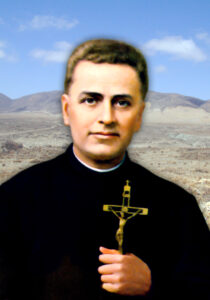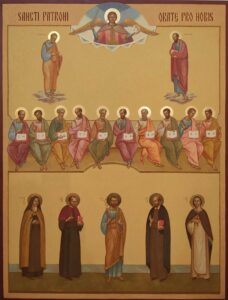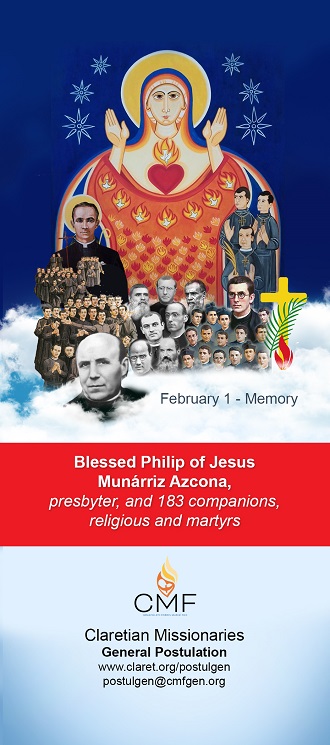
CLARET AND BALMES – Blessed José Brengaret Pujol; b. 18.01.1913 in Sant Jordi Desvalls (Gerona); + 23 years old, finished 4th year of Theology
Claret and Balmes! It was not just the whim of a few writers that brought these two illustrious names together. It was the providential hand of God that, by forming with these two red tongues of fire a single flame, a flame of light and a flame of life, illuminated the dark and difficult paths of the Spanish nation in the last century.
The year 1840 arrived and the two defenders of the Catholic cause entered the battlefield at almost the same time. In April, Balmes published his first book in defence of the Catholic clergy. In August of the same year, Father Claret began his famous series of missions, which worked wonders in innumerable villages throughout Spain.
It is truly wonderful to contemplate the life of the Sallentine apostle, so virtuous, so fruitful, illuminated many times by the splendour of miracles, and always crowned by the splendour of holiness. But who can forget the treasure of science that is the multitude of his principles, the abundance of knowledge that his incessant preaching demanded, full of luminous ideas and always based on Sacred Scripture and the writings of the Holy Fathers and Doctors of the Church.
Balmes’ literary output was large, sufficient to form a library. But this eminent wisdom and prodigious fecundity, supported always by a perfect submission to the authority of the Church and a humble devotion to the Rosary, gave to the spirit of the Catalan philosopher that constant elevation, sincerity and purity which in the Sallentine apostle was shining with flashes of eminent holiness.
Both athletes took to the field, using the same weapons of combat, for both had moulded their minds in the same way. Thus, the saintly Archbishop Claret wrote in his Plan of Studies for the Seminary of L’Escorial: “Whatever author is explained in the classrooms, if you want to know theology, always keep before your eyes the Summa of St Thomas”. And Balmes said: “In the Summa of St Thomas one finds everything: Philosophy, Religion, Law, everything is, as in a cocoon, in those laconic sentences that contain within themselves unimaginable riches of science”.
And why not say so? Close spirits also showed us Claret and Balmes, when the hand of tribulation and calumny was knocking at their doors. When the good intentions of the author of “Pius IX” were misinterpreted, the humble philosopher replied to a friend who urged him to defend himself: “Truth, virtue, conscience, God, it is precisely this that we must look at; the rest will soon pass. And when the hour of probation came for the confessor of Isabella II and the holy archbishop of Cuba, and when he was calumniated and defamed in newspapers, magazines and brochures, as perhaps no other saint had ever been, he consumed in the silence of his heart the bitter bread of calumny and defamation; and with his heart turned to God and his face serene, he marched resolutely into exile.
Claret and Balmes! Here are two like-spirits, two fraternal hearts, two ideas that sprang at the same time from the will of God. They were the ‘two solid gold cherubim whose wings covered the Mercy seat of the Spanish Church in the 19th century’. Honour to their illustrious names!
José Brengaret Pujol






You must be logged in to post a comment.